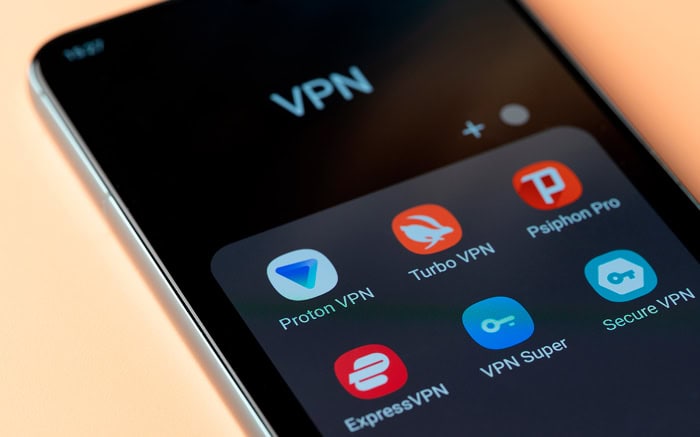Pros and Cons of Using a Free VPN: What’s the Real Price?

A free VPN promises online privacy without the price tag, a tempting offer for anyone looking to secure their connection. Yet, that zero-cost service comes with hidden trade-offs that can undermine the very protection you seek.
Many providers fund their operations by collecting and selling your browsing data, leaving your privacy exposed. Beyond these risks, users often face frustratingly slow speeds, strict data limits, and an inability to access popular streaming sites.
Safety and Privacy
While a VPN’s primary function is to enhance online safety and privacy, the business models of free services can create significant risks. A provider that does not charge a subscription fee must generate revenue through other means, which often involves monetizing its users' activities.
Consequently, the promise of protection can be misleading, as some free VPNs may compromise your data in ways that are difficult to detect.
Data Logging and Monetization Risks
Many free VPN providers operate on a simple principle: if you are not paying for the product, you are the product. To stay in business, these services may log your online behavior, including the websites you visit, the duration of your sessions, and your original IP address.
This information is then aggregated, anonymized, and sold to data brokers, advertisers, and other third parties. Such practices directly contradict the core purpose of using a VPN for privacy. Vague privacy policies and a lack of transparency often obscure these data collection methods, leaving users unaware that their information is being shared or sold.
Common Security Gaps
Free VPNs often lack the financial resources to maintain robust security infrastructure. They may rely on outdated or weak encryption protocols, leaving your data vulnerable to interception.
Furthermore, reputable paid services frequently invest in independent third-party audits to verify their security claims and no-logs policies, a step that most free providers skip. Some low-quality free VPN apps have also been found to contain malware or invasive trackers.
Instead of protecting you, these applications can introduce new security threats to your device, actively working against your privacy goals.
Limits of VPN Protection
It is important to recognize what a VPN can and cannot do. A VPN effectively masks your IP address and encrypts your internet traffic, preventing your Internet Service Provider (ISP) and anyone on your local network from monitoring your activity.
However, a VPN does not provide absolute anonymity or complete protection. It cannot protect you from malware or viruses that are already on your device, nor can it prevent you from falling for phishing scams.
Additionally, once you log into an online account, such as Google or a social media platform, that service can track your activity on its site regardless of whether you use a VPN.
Performance Limitations

Beyond privacy concerns, the most immediate frustrations with free VPNs often relate to poor performance. These services must manage costs, so they impose significant restrictions on free users to conserve resources and encourage upgrades to paid plans.
The result is an experience frequently defined by slow speeds, restrictive data allowances, and unreliable connections that can make the service impractical for many common online activities.
Speed Throttling and Congestion
Free VPN providers typically operate with a much smaller server network than their paid counterparts. With thousands of users crowding onto a few servers, network congestion is almost inevitable.
This heavy load dramatically reduces connection speeds and increases latency, which causes buffering during video streams, lag in online games, and slow loading times for websites. Your connection may also drop unexpectedly as overloaded servers struggle to manage the traffic.
Some providers intentionally throttle the speed of free users to ensure their paying customers get better performance, rendering the free service barely usable for anything beyond basic browsing.
Data Caps and Session Restrictions
To control bandwidth costs, nearly all free VPNs impose strict data caps. These limits are often just a few gigabytes per month, which can be exhausted quickly by streaming a single movie in high definition or downloading a large file.
Once you hit your data limit, the VPN will stop working until the next month, or it will slow your connection to an unusable crawl. In addition to data caps, many services enforce session limits, automatically disconnecting you after a set period of time.
This forces you to constantly reconnect, interrupting your workflow and making continuous protection impossible.
Limited Server Locations and Unreliable Connections
The server network offered by free VPNs is not only small but also geographically limited. You may only have access to servers in a handful of countries, which severely restricts your ability to bypass geo-blocks for content specific to other regions.
This makes free VPNs an unreliable tool for accessing media libraries from around the world. The combination of few servers and high user demand leads to unstable connections that are prone to failure.
Access and Feature Limitations
The limitations of a free VPN extend beyond performance and into the core features you can access. To encourage users to upgrade, providers often reserve essential capabilities for their paid tiers, leaving the free version as a heavily restricted sample.
This means that many popular uses for a VPN, such as unblocking streaming content or protecting multiple devices, are either unavailable or severely compromised on a free plan. The experience is often a stripped-down version of what a premium service offers.
Ineffective Geo-Unblocking for Streaming
One of the most popular reasons to use a VPN is to access geographically restricted content on streaming services. However, free VPNs are notoriously bad at this.
Major platforms like Netflix, Hulu, and BBC iPlayer invest heavily in identifying and blocking VPN traffic. Free providers have small pools of IP addresses that are quickly blacklisted.
As a result, you will likely encounter proxy error messages instead of the content you want to watch. Even if a server works temporarily, it may be blocked the next day, and with few alternative locations to choose from, you will be left with no reliable options.
Restrictions on P2P and Torrenting
Peer-to-peer (P2P) file sharing, including torrenting, consumes significant bandwidth. To manage costs and avoid potential legal issues related to copyright infringement, most free VPN providers either completely forbid P2P traffic or severely throttle it.
Attempting to download torrents on a restricted server will result in extremely slow speeds, making the process impractical. For users who rely on torrenting for legitimate file sharing, a free VPN is not a viable solution, as the activity is either blocked outright or slowed to a crawl.
Limited Device Support and Connections
Free VPN plans almost always restrict you to a single simultaneous connection. This means you can only protect one device at a time, forcing you to choose between your computer, phone, or tablet.
To secure multiple devices, you would need to log out and log back in repeatedly. Furthermore, free services often have limited application support.
While they may offer apps for Windows and macOS, support for other platforms like Linux, smart TVs, or routers is typically reserved for paying customers. The free apps themselves are often bare-bones, lacking advanced features like a kill switch, split tunneling, or specialized servers that are standard in paid versions.
Business Models and Trust

The trustworthiness of a free VPN is directly tied to its business model. Since these providers do not charge a subscription, they must find alternative ways to cover their operational costs and generate profit.
How they make money is the most critical factor in determining whether the service is a genuine privacy tool or a hidden data collection mechanism.
Ad-Supported vs. Freemium Models
Free VPNs generally fall into two categories: those supported by advertisements and those operating on a freemium model. Ad-supported services generate revenue by displaying ads in their apps or, in more invasive cases, by injecting them into your browsing sessions.
This model can be a privacy risk, as some providers partner with ad networks that track your activity to serve targeted commercials. A far more dangerous model is one where the provider secretly collects and sells user data to third parties.
In contrast, the freemium model is typically safer. Reputable VPN companies offer a limited free version as a marketing tool to attract customers to their paid plans.
Their primary revenue comes from paying subscribers, not from monetizing free users. Because their business depends on a reputation for privacy and security, these providers have a strong incentive to protect all their users, including those on the free tier.
The Reality of No-Logs Policies
Nearly every VPN service claims to have a strict no-logs policy, but this promise can be meaningless without verification. A true no-logs provider does not collect or store any data that could be used to identify you or your online activities.
Vague marketing slogans are not enough to guarantee this. Trustworthy providers substantiate their claims with concrete actions.
Independent third-party audits are the gold standard for verification. A reputable security firm is hired to inspect the VPN's servers and internal practices to confirm that no logs are being kept.
Additionally, many top providers publish regular transparency reports, which document any legal requests for user data they have received and confirm that they had no information to provide. A clear, detailed privacy policy that explains what is and is not collected is far more valuable than a simple no-logs claim.
Corporate Jurisdiction and Data Compliance
The country where a VPN company is legally based has significant implications for your privacy. Nations have vastly different laws regarding data retention and government surveillance.
A provider located within a jurisdiction that is part of an intelligence-sharing alliance, such as the 5, 9, or 14 Eyes alliances, can be legally compelled to monitor users and share their data with government agencies.
In such a country, a no-logs policy could be overridden by national law, forcing the company to betray its promises. For this reason, many privacy-focused VPNs incorporate in countries with strong privacy protections and no mandatory data retention laws, like Panama or the British Virgin Islands.
The provider's choice of jurisdiction is a fundamental indicator of its dedication to protecting user data from government overreach.
When to Use and Alternatives
Despite their many drawbacks, free VPNs can be suitable for specific, limited situations. The decision to use one depends entirely on matching the tool’s capabilities to the task at hand and your tolerance for risk.
For low-stakes activities, a free service might suffice, but for anything more demanding, it is wise to either upgrade to a paid provider or consider other tools that might better serve your privacy needs.
Acceptable Uses for a Free VPN
A free VPN can be a practical tool for temporary, low-risk tasks where performance and robust privacy are not primary concerns. The most common acceptable use is securing your connection on public Wi-Fi networks, such as those in coffee shops, airports, or hotels.
In this scenario, the VPN's basic encryption protects your traffic from other users on the same network who might try to snoop on your activity. It serves to mask your IP address for a quick search or casual browsing session.
However, it is only appropriate when you are not handling sensitive information and can tolerate slow speeds, data limits, and potential disconnects.
When to Upgrade to a Paid VPN
There are many situations where the limitations and risks of a free VPN are unacceptable. You should upgrade to a reputable paid service if your needs include any of the following.
- Continuous Protection: If you want an always-on VPN to secure all your internet traffic around the clock, a paid service is essential. Paid plans offer unlimited data, stable connections, and features like a kill switch that prevents data leaks if the VPN disconnects.
- Streaming and Travel: To reliably bypass geo-restrictions and access content libraries from other countries, you need a paid VPN with a large, well-maintained server network. Paid providers constantly update their IP addresses to evade blocks from streaming platforms and offer fast speeds for a buffer-free experience.
- Sensitive Work: For handling sensitive personal or professional information, a paid VPN is non-negotiable. Reputable paid services are backed by audited no-logs policies, strong encryption, and secure jurisdictions that ensure your data remains completely private.
Alternatives and Complementary Tools
A VPN is just one tool for enhancing online privacy, and in some cases, other options may be more appropriate or can be used alongside a VPN for layered protection.
- HTTPS: Most modern websites use HTTPS to encrypt the connection between your browser and the server. Always ensure the padlock icon is visible in your address bar, as this protects the content of your traffic from being read by intermediaries, although it does not hide the websites you visit from your ISP.
- Secure DNS: You can switch your device’s DNS resolver to a privacy-focused service like Cloudflare or Quad9. This encrypts your DNS queries, preventing your ISP from logging every website you access. It is a simple and effective privacy measure that can be used with or without a VPN.
- Tor Browser: For a high degree of anonymity, the Tor Browser is the standard. It routes your traffic through a volunteer-operated network, making your online activity extremely difficult to trace. While much slower than a VPN, Tor is the best option for users who need to protect their identity in high-stakes situations.
- Self-Hosted VPN: Technologically savvy users can set up their own VPN on a private server. This approach gives you complete control over your data and eliminates the need to trust a third-party provider, though it requires technical knowledge to configure and maintain.
Conclusion
The decision to use a free VPN boils down to a clear trade-off: you exchange cost for significant concessions in privacy, performance, and functionality. These services almost always come with slow speeds, strict data caps, and unreliable connections that make them unsuitable for streaming, torrenting, or large downloads.
More critically, many are funded through business models that can expose your personal data, directly opposing the primary reason for using a VPN. While a free service may be adequate for brief, low-stakes tasks like temporarily securing a connection on public Wi-Fi, its utility effectively ends there.
For anyone seeking consistent protection, reliable access to global content, or the assurance of a truly private connection, investing in a reputable paid VPN or exploring other privacy-enhancing technologies is the only sensible path forward.


